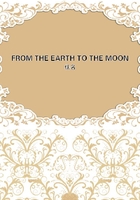
第26章
Florida, discovered on Palm Sunday, in 1512, by Juan Ponce de Leon, was originally named _Pascha Florida_. It little deserved that designation, with its dry and parched coasts. But after some few miles of tract the nature of the soil gradually changes and the country shows itself worthy of the name. Cultivated plains soon appear, where are united all the productions of the northern and tropical floras, terminating in prairies abounding with pineapples and yams, tobacco, rice, cotton-plants, and sugar-canes, which extend beyond reach of sight, flinging their riches broadcast with careless prodigality.
Barbicane appeared highly pleased on observing the progressive elevation of the land; and in answer to a question of J. T.
Maston, replied:
"My worthy friend, we cannot do better than sink our Columbiad in these high grounds.""To get nearer the moon, perhaps?" said the secretary of the Gun Club.
"Not exactly," replied Barbicane, smiling; "do you not see that among these elevated plateaus we shall have a much easier work of it? No struggles with the water-springs, which will save us long expensive tubings; and we shall be working in daylight instead of down a deep and narrow well. Our business, then, is to open our trenches upon ground some hundreds of yards above the level of the sea.""You are right, sir," struck in Murchison, the engineer; "and, if Imistake not, we shall ere long find a suitable spot for our purpose.""I wish we were at the first stroke of the pickaxe," said the president.
"And I wish we were at the _last_," cried J. T. Maston.
About ten A.M. the little band had crossed a dozen miles.
To fertile plains succeeded a region of forests. There perfumes of the most varied kinds mingled together in tropical profusion.
These almost impenetrable forests were composed of pomegranates, orange-trees, citrons, figs, olives, apricots, bananas, huge vines, whose blossoms and fruits rivaled each other in color and perfume.
Beneath the odorous shade of these magnificent trees fluttered and warbled a little world of brilliantly plumaged birds.
J. T. Maston and the major could not repress their admiration on finding themselves in the presence of the glorious beauties of this wealth of nature. President Barbicane, however, less sensitive to these wonders, was in haste to press forward;the very luxuriance of the country was displeasing to him.
They hastened onward, therefore, and were compelled to ford several rivers, not without danger, for they were infested with huge alligators from fifteen to eighteen feet long.
Maston courageously menaced them with his steel hook, but he only succeeded in frightening some pelicans and teal, while tall flamingos stared stupidly at the party.
At length these denizens of the swamps disappeared in their turn; smaller trees became thinly scattered among less dense thickets-- a few isolated groups detached in the midst of endless plains over which ranged herds of startled deer.
"At last," cried Barbicane, rising in his stirrups, "here we are at the region of pines!""Yes! and of savages too," replied the major.
In fact, some Seminoles had just came in sight upon the horizon;they rode violently backward and forward on their fleet horses, brandishing their spears or discharging their guns with a dull report.
These hostile demonstrations, however, had no effect upon Barbicane and his companions.
They were then occupying the center of a rocky plain, which the sun scorched with its parching rays. This was formed by a considerable elevation of the soil, which seemed to offer to the members of the Gun Club all the conditions requisite for the construction of their Columbiad.
"Halt!" said Barbicane, reining up. "Has this place any local appellation?""It is called Stones Hill," replied one of the Floridans.
Barbicane, without saying a word, dismounted, seized his instruments, and began to note his position with extreme exactness. The little band, drawn up in the rear, watched his proceedings in profound silence.
At this moment the sun passed the meridian. Barbicane, after a few moments, rapidly wrote down the result of his observations, and said:
"This spot is situated eighteen hundred feet above the level of the sea, in 27@ 7' N. lat. and 5@ 7' W. long. of the meridian of Washington. It appears to me by its rocky and barren character to offer all the conditions requisite for our experiment. On that plain will be raised our magazines, workshops, furnaces, and workmen's huts; and here, from this very spot," said he, stamping his foot on the summit of Stones Hill, "hence shall our projectile take its flight into the regions of the Solar World."